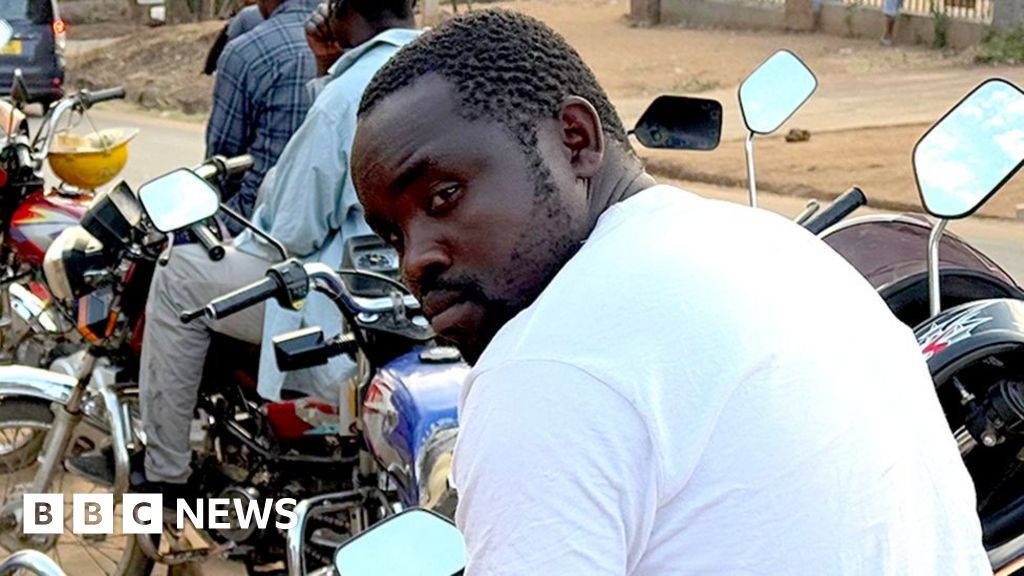
Malawi election: Lazarus Chakwera and Peter Mutharika face off in re-match of 2020

Malawi’s Upcoming Elections: A High-Stakes Rematch Between Chakwera and Mutharika
As the general election approaches in Malawi, the nation finds itself grappling with a myriad of pressing issues that threaten to overshadow the electoral process. On Tuesday, voters will head to the polls to decide not only their next president but also parliamentary and local council representatives. The backdrop to this election is one of economic hardship, marked by fuel shortages, power outages, rising living costs, and increasing levels of poverty and unemployment.
Economic Struggles and Election Sentiment
In recent weeks, the sight of long queues for petrol has become a common theme, with many citizens expressing frustration over their inability to secure fuel. The situation has escalated to the point where some individuals have resorted to selling petrol and diesel in small containers at exorbitant prices—five times the official rate. In the southern town of Mangochi, young men engaged in this practice declined to speak on the record, indicating that desperation has driven them to exploit the situation for survival.
Malawi’s economic woes have been compounded by a high inflation rate, which has surged over 30% in the past year. This inflation is largely attributed to a shortage of foreign currency, forcing many importers to purchase U.S. dollars on the black market, which in turn drives up consumer prices. With nearly half of registered voters under the age of 35, the economic climate poses a significant challenge for the election, particularly as young voters voice their disillusionment with the political landscape.
The Candidates: Chakwera vs. Mutharika
The presidential race is a rematch between incumbent President Lazarus Chakwera, 70, and former President Peter Mutharika, 85, who was defeated in the 2020 elections. While there are 15 candidates vying for the presidency, Chakwera and Mutharika dominate the conversation.
Chakwera has attempted to address the fuel crisis directly, acknowledging the frustrations of the populace during a televised address just days before the election. He has accused corrupt officials of sabotaging the oil market and has promised to rectify the situation. However, his administration has faced criticism for rising food prices, particularly concerning fertilizer costs, which are now six times higher than they were in 2019. Chakwera has pledged to implement a targeted program to bring these prices down, promising smallholder farmers relief.
On the other side, Mutharika’s campaign has seen him revisit rural areas, where he has garnered support by suggesting that life was better during his presidency. His supporters have raised concerns about the rising costs of essential farming inputs, which are critical for the 80% of the population living in rural areas who rely on agriculture for their livelihoods.
Voter Sentiment and Expectations
The mood among voters is one of skepticism and caution. Many young citizens express a sense of hopelessness regarding the electoral process, feeling that previous elections have not led to meaningful change. “We’ve been voting and voting, but things haven’t gotten better,” said Ashley Phiri, a 35-year-old voter. The prevailing sentiment is that the next leader must address the poverty crisis and improve employment opportunities for the youth.
Monica Chinoko, a 33-year-old resident of Lilongwe, echoed these sentiments, urging young voters to consider the poverty crisis when casting their ballots. The lack of enthusiasm among younger voters is palpable, with many indicating that the choices available do not inspire confidence for a better future.
Other Candidates and Issues at Stake
In addition to Chakwera and Mutharika, other candidates include Joyce Banda, the only female president in Malawi’s history, who is also running again. Banda has pledged to combat corruption, enhance the economy, and improve infrastructure in rural areas. Other notable candidates include Atupele Muluzi, Dalitso Kabambe, and current Vice-President Michael Usi, all of whom have promised radical changes to address the country’s pressing issues.
As the election draws near, Malawians are hopeful that the eventual winner will prioritize food security and fuel availability, both of which are critical to the daily lives of the population. The outcome of this election could have profound implications for Malawi’s future, especially in light of the significant challenges the country currently faces.
Conclusion
As voters prepare to head to the polls in a climate of economic distress and political uncertainty, the stakes have never been higher. With the presidential race focusing on the rematch between Lazarus Chakwera and Peter Mutharika, the citizens of Malawi will be looking for a leader who can effectively tackle the issues that have plagued the nation for far too long.
Key Facts
– Malawi’s general election includes presidential, parliamentary, and local council races.
– The election features incumbent President Lazarus Chakwera and former President Peter Mutharika as the main contenders.
– Economic issues such as fuel shortages, rising food prices, and high inflation are dominating voter concerns.
– Approximately half of registered voters are under the age of 35, many of whom express disillusionment with the political process.
– Other notable candidates include Joyce Banda, Atupele Muluzi, Dalitso Kabambe, and Vice-President Michael Usi.
Source: www.bbc.com
